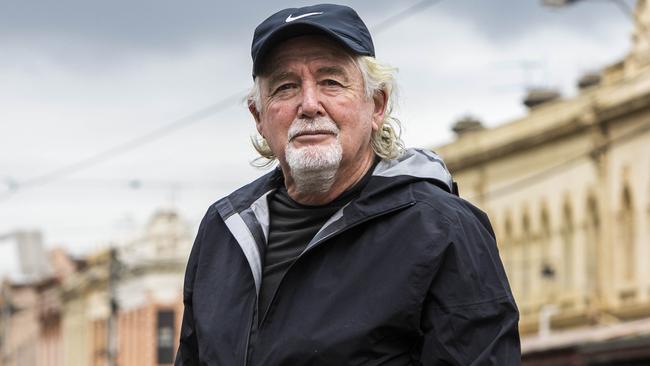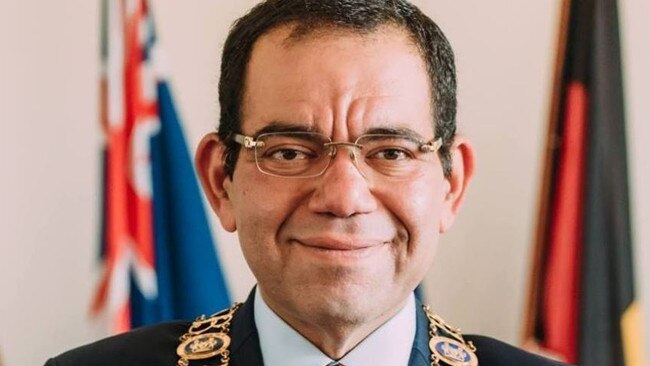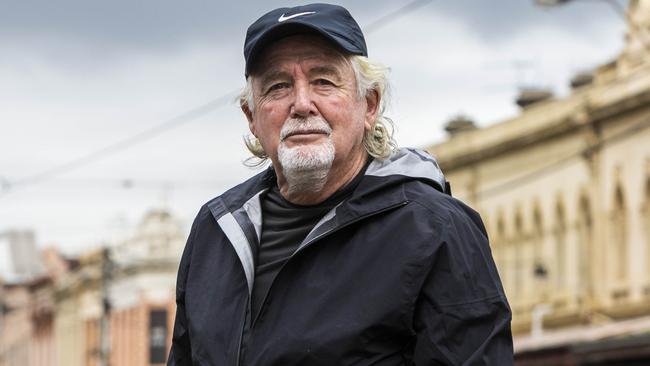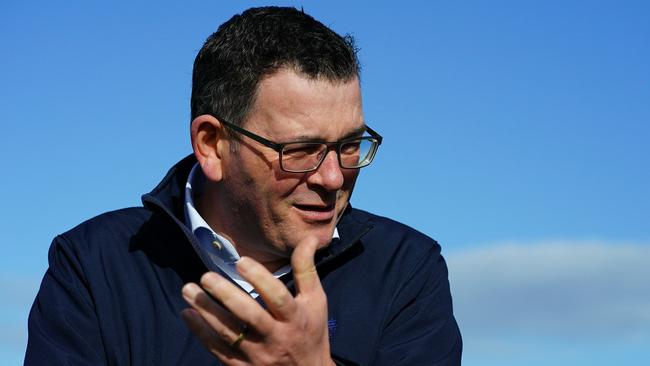Operation Sandon: Why an IBAC probe caused such controversy
IBAC’s long-awaited report into corruption allegations involving councillors and developers in Melbourne’s southeastern suburbs has been released. Here’s what it found.

Victoria
Don't miss out on the headlines from Victoria. Followed categories will be added to My News.
After being held up in an extensive court fight, Victoria’s anti-corruption watchdog on Thurday released its long-awaited report probing allegations of corrupt conduct involving councillors and property developers in Melbourne’s booming southeastern suburbs.
What did the report find?
• The lengthy investigation found that for more than a decade, developer John Woodman improperly sought to influence City of Casey councillors in return for favourable council decisions.
• Several councillors accepted payments, gifts or other benefits, including political donations, in exchange for supporting council decisions on planning matters that favoured Mr Woodman’s interests.
• Councillors Sam Aziz and Geoff Ablett actively took steps to promote Mr Woodman’s and his clients’ interests. Both received financial and in-kind compensation in return, and failed to declare conflicts of interest about their involvement with Mr Woodman.

• IBAC refused developer John Woodman’s assertion that none of the benefits he provided were illegal or improper.
• Casey Council lacked “adequate safeguards” to ensure integrity, which allowed the conduct to flourish. This saga, in part, led to the entire Casey Council being sacked by the Andrews government in 2020.
• Mr Woodman also sought to influence state government decision makers by paying lobbyists and cultivating relationships with or funding political candidates, staff, MPs and ministers.
• Premier Daniel Andrews asked a lobbyist to tell Mr Woodman that he regretted a planning decision being deferred. Mr Andrews has denied this claim.

What did the report recommend?
IBAC made 34 recommendations, warning “extensive” reforms were needed to reduce the risk of corruption. This can be done by increasing transparency in planning decisions, better regulating donation and lobbying laws, improving accountability and strengthening council governance.
Key recomendations include:
• For Daniel Andrews to establish an interdepartmental taskforce to oversee all recommendations, and publicly report its process by January 27, 2025
• For councillors to be stripped of all staturory planning responsibilities
• Banning councillors voting “en bloc” in council meetings
• For councillors to undergo conflict-of-interest training
• To investigate whether the state’s donation laws can be strengthened by banning high-risk groups, including property developers, from making political donations to parties and state and local government candidates
• For electorate officers to be appropriately supervised and given clear accountability when an MP is on extended leave
Despite making adverse findings about several people, IBAC did not recommend any criminal charges.

What projects were probed?
• Amendment C219 (2014-2019): A proposal by landowners to rezone part of Cranbourne West as residential to increase its value.
Mr Woodman, who was paid to represent the landowners, needed the support of the Casey Council and the approval of the Minister for Planning. Mr Woodman, Mr Kenessey and Ms Schutz earned fees exceeding $645,000 each from Leighton Properties for their work on C219. The project was ultimately rejected, however if it had been approved Mr Woodman would have been paid about $2m.
• H3 Intersection (2018): T intersection constructed to allow traffic between two housing estates.
Mr Woodman and his associates ensured that the other company involved would bear the bulk of costs for the construction by supporting a residents’ action group seeking the intersection’s speedy construction. Councillor Aziz and Councillor Ablett were paid in exchange for their support on Council.
• Pavilion Estate (2017-18):
Shortly after Casey Council approved the development permit, the landowner submitted an amendment by reducing open-space requirements and road-reserve widths and charging the council for the cost of constructing a road. Mr Woodman’s son was a director and shareholder of the company managing the development. Mr Woodman and his associates worked with Councillor Aziz — who was paid for his support — to draft and move motions in favour of the amendment. Council approved the amendment without debate, despite council’s planning officers advising that the proposal be rejected.
• Brompton Lodge (2007-2018): Owners of 108 acres of rural land in Cranbourne South requested to have their land rezoned for residential development as part of the Urban Growth Boundary.
Mr Woodman, his son and two political lobbyists successfully progress changes with the Casey Council and the state government. In 2018, the land was sold to a company associated with a company co-owned by Mr Woodman’s son. That company then commences the development of about 1500 dwellings. IBAC found improper conduct by certain Casey councillors. An example of the “heightened risk of privileged access and improper influence that is common to all rezoning matters because of the potential for windfall gains. It also further illustrates Mr Woodman’ strategy in seeking to influence planning decision-making through lobbying and political donations”.
Why is the report only being released now?
The Supreme Court in May dismissed an application from Mr Woodman for an injunction.
And on Monday this week, the Victorian Court of Appeal rejected Mr Woodman’s last-ditch bid to block the report’s release.
The report was finally tabled in state parliament on Thursday morning.
Is Daniel Andrews implicated in this report?
No. IBAC has made no adverse findings against the Premier, but IBAC wrote that Mr Andrews asked to express regret to Mr Woodman after the government deferred a land rezoning decision.
Other corruption probes involving the Premier
OPERATION RICHMOND
The top-secret investigation, codenamed Operation Richmond, was into the dealings between the powerful United Firefighters Union and its state secretary Peter Marshall and Labor, but its terms are believed to have widened over the course of the probe. Premier Daniel Andrews is among those understood to have been interviewed, although he has never publicly confirmed. Its findings are yet to be released.
OPERATION WATTS
The watchdog investigated whether political staffers, including MPs, engaged in corrupt conduct while working in public office to direct ministerial and electorate office staff to perform party‐political work while on the taxpayer dime. Former powerbroker Adem Somyurek was at the centre of the saga, but Mr Andrews was also quizzed. The Premier later said IBAC uncovered “absolutely disgraceful behaviour”.
OPERATION DAINTREE
Operation Daintree was a secret investigation into how improper influence compromised a $1.2m contract awarded to the Health Education Federation, a division of the Health Workers Union, by Andrews government advisers. The contract gave the Labor-affilitated union the tick of approval. The IBAC report raised serious questions about the Premier’s credibility and the behaviour of his office and staff. Daniel Andrews later dismissed it as an “educational report”.


